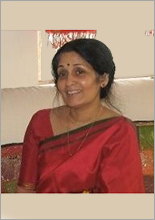Public Private Partnerships in Education in the Arab World: Egypt and Qatar – Part II
Education has always played a critical role for national economic, political, and social development. Education also helps people escape from poverty and participate to a greater extent in society and the market place. In most parts of the world governments assume the responsibility for providing and financing education, especially basic education. This responsibility is often both too large and too complex for many government to meet adequately. Hence it is important for governments to explore diverse ways to finance and provide educational services.
The role of PPPs in education fulfills a government need for adequate educational management. Governments all over the world are now exploring several different ways in which PPPs can help to increase access to quality education for all, especially targeting poor children living in remote areas, underserved communities and children belonging to minority populations.
Public Private Partnerships (PPPs) linked to policy and contracts were first started in Egypt and Qatar. The Egyptian government signed 15- to 20-year contracts with private partners to design, finance, and maintain 300 schools in 23 gubernatorial districts. Beginning 2006, the Egyptian government also worked to establish PPPs[1] with Sectorial Training Councils in the industrial and construction sectors with the objective of introducing reforms in education and training. Enterprise Training Partnerships (ETP) were also established for the TVET Reform Program in 2005 through PPPs. A total of 12 sectorial ETPs and 19 local ETPs were established. Each of the ETPs was managed by a management board, two-thirds of whom represented private businesses and one-third of which came from education and training providers.
Another example of the early introduction of PPPs[2] in the Middle East was a voucher program in Qatar. This voucher system allowed parents to choose among independent, privately accredited and international schools. The primary objective of the project was to improve quality and increase educational choice to raise academic achievement. The schools remained autonomous and were held accountable for student learning. The variety of schooling options, over time, gave parents a growing range of different kinds of schools to choose from when selecting the best schools for their children.
Qatar also introduced a program for Independent Schools (ISs), the objective of which was to improve the management of schools, to improve the quality of education and to increase school independence. Independent schools were government funded (based on the number of students enrolled) and privately managed. ISs could be newly established or existing public schools. Management contracts were for three years and renewable, conditional on school performance. Under the IS system, the government continued to assume the cost of education for eligible students and provided funds directly to the school. Managers could charge a fee to students who were not eligible for a subsidy. Managers are also allowed to make a reasonable profit. Funding mechanisms included per capita student funding, start-up funds, and special grants.
The experience of countries like Egypt and Qatar serve well to explain why a PPP modality works to help build efficient and equitable education across the Arab world.
Read Part I
[1] Egypt Country Report, Ministry of Education, March 2014.
[2] The Role and Impact of PPPs in Education, World Bank, 2009.
Rema Nair Balasundaram is a professional in the area of education in Asia and Africa. She has worked extensively, leading operational teams, in the education sector for the World Bank, UNDP, ADB and the IFC. She has led delegations and task forces for technical assistance in Asia and Africa, focusing on primary education, secondary education and tertiary education over the years. She has also led operations and evaluations of Joint, Global and Regional Programs in the Education sector in Asia and Africa. She has graduate degrees in Development management, and Food Science and Nutrition, and a major in Public and Economic Policy.
